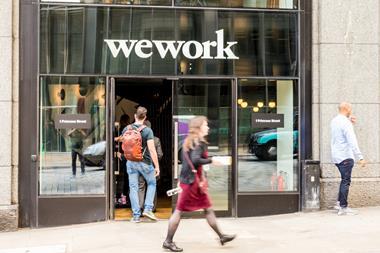In the recent case of Co-operative Bank plc v Hayes Freehold Ltd, a tenant surrendered its lease without checking whether the landlord had mortgaged the freehold.

The surrender was void, with unfortunate consequences.
The dispute concerned commercial premises in west London. Hayes Freehold Ltd was the freeholder and Deutsche Bank was the head tenant. Deutsche had sub-let the premises to a weak covenant whose obligations were guaranteed by Sentrum Holdings Ltd. The freehold was charged to the Co-operative Bank.
In August 2015, the parties entered into a deed to surrender the headlease and the sub-lease and to release the sub-lease guarantor. Crucially, bank consent was required for the headlease surrender, but this was not obtained before the deed was completed.
Deutsche’s solicitors did not check the freehold title and were unaware of the Co-operative charge. Despite this, they told their client that the headlease surrender would take effect.
However, the failure to obtain bank consent meant that the surrender of the headlease did not take effect. Deutsche was left on the hook for the remainder of the term with an annual rent of more than £2.6m.

In contrast, the sub-lease surrender had taken effect and the sub-tenant’s guarantor had been released. Now left with a lease and without a guarantor, Deutsche tried to convince the High Court that the sub-lease and its guarantee remained on foot.
Deutsche suggested there was an implied condition precedent that the sub-lease would not be surrendered unless the headlease was also surrendered. The court rejected this. The judge decided such a condition was not necessary to give the deed business efficacy, and therefore could not say that it must have been the parties’ intention.
Deutsche also claimed the freeholder and sub-tenant had implicitly made a fraudulent representation that the headlease surrender would take effect, when they knew it would not due to lack of bank consent. But the judge said that Deutsche had relied on the advice of its solicitors, not the actions of the other parties.
Deutsche’s third and fourth arguments were based on the notion that the deed was void (or voidable) due to a mistake as to its legal effect. This also failed. Deutsche’s final argument was that the guarantor had been unjustly enriched by its release from its obligations. The judge dismissed this too, saying that unjust enrichment cannot be relied on simply to get out of a bad bargain.






























No comments yet